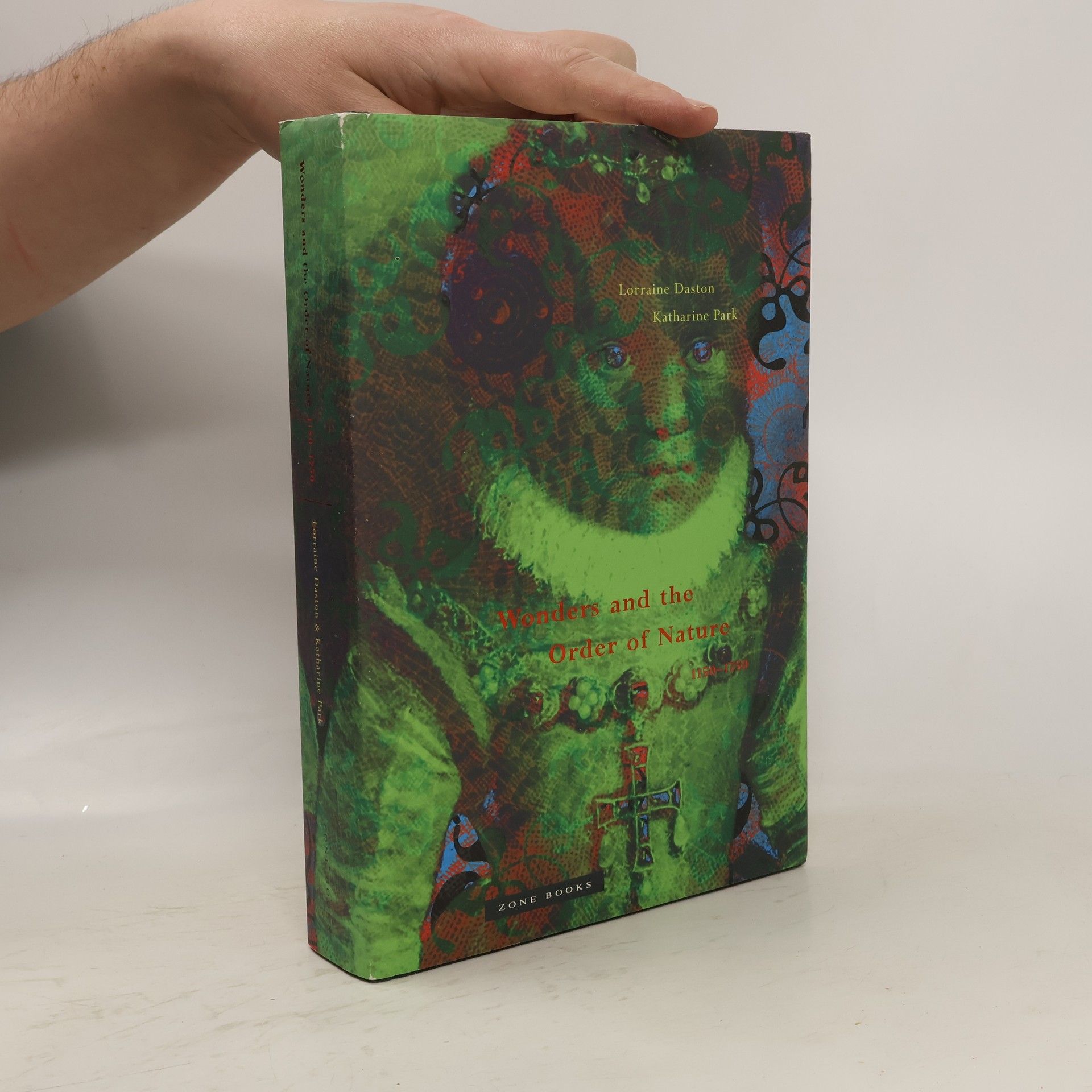Objectivity
- 504 pages
- 18 hours of reading
The emergence of objectivity in the mid-nineteenth-century sciences, as revealed through images in scientific atlases-a story of how lofty epistemic ideals fuse with workaday practices.
Lorraine Daston is a distinguished historian of science, whose work delves into the intellectual landscape of Early Modern Europe. She expertly examines how scientific ideas and practices evolved, offering profound insights into the development of knowledge. Her rigorous scholarship illuminates the intricate relationship between thought, culture, and the scientific endeavor. Daston's research is essential for understanding the foundations of modern scientific inquiry.






The emergence of objectivity in the mid-nineteenth-century sciences, as revealed through images in scientific atlases-a story of how lofty epistemic ideals fuse with workaday practices.
Wonders and the Order of Nature is about the ways in which European naturalists from the High Middle Ages through the Enlightenment used wonder and wonders, the passion and its objects, to envision themselves and the natural world. Monsters, gems that shone in the dark, petrifying springs, celestial apparitions -- these were the marvels that adorned romances, puzzled philosophers, lured collectors, and frightened the devout. Drawing on the histories of art, science, philosophy, and literature, Lorraine Daston and Katharine Park explore and explain how wonder and wonders fortified princely power, rewove the texture of scientific experience, and shaped the sensibility of intellectuals.
Discusses how European scientists from the High Middle Ages through the Enlightenment used wonders, monsters, curiosities, marvels, and other phenomena to envision the natural world.
Originally a doctoral dissertation submitted to the Department of the History of Science at Harvard University.
In Rules, historian Lorraine Daston traces their development in the Western tradition and shows how rules have evolved from ancient to modern times. Drawing on a rich trove of examples, including legal treatises, cookbooks, military manuals, traffic regulations, and game handbooks.
Seit den siebziger Jahren sind Lorraine Daston und Katherine Park einem schillernden Forschungsgegenstand nachgegangen: dem Wunderbaren. Daß sie sich dabei weder in den faszinierenden Details verloren haben noch in der Fülle des überwältigenden Stoffs ertrunken sind, gleicht selbst schon einem Mirakel - denn ob Basilisken, die mit Blicken töten können, finstere Völker, die jeden Seemann in seiner Landessprache ansprechen und den Verblüfften am liebsten gut gewürzt verspeisen, Magneten, die Eisennägel aus den Schiffen ziehen, Einhörner, die nur von Jungfrauen zu fangen sind oder sagenhafte Herrscher, versunkene Kulturen, wundersame Steine, seltsame Tiere, Hermaphroditen und absonderliche Mißgeburten - es gibt nichts, was die menschliche Fantasie so beflügelt hat, wie eben das, was neu und kaum zu glauben ist. Der ebenso anregende wie atemberaubende Streifzug der beiden Autorinnen durch die Welt des Wunderbaren und Bizarren beginnt bei den ersten Zeugnissen von un- und übernatürlichen Phänomenen in Topographien, Chroniken und anderen Schriften und reicht bis zur Stellung des Wunderbaren bei Medizinern, an Höfen, in der Religion, in der Naturphilosophie und der beginnenden Psychologie der Aufklärung. Denn natürlich wurden Wunder nicht nur bestaunt, sondern auch in Weltsysteme eingebunden und in vielfältiger Weise instrumentalisiert.
Die Biographie der Athene oder Eine Geschichte der Rationalität · Wunder und Beweis im frühneuzeitlichen Europa · Die kognitiven Leidenschaften: Staunen und Neugier im Europa der frühen Neuzeit · Angst und Abscheu vor der Einbildungskraft in der Wissenschaft · Objektivität und die Flucht aus der Perspektive · Die moralischen Ökonomien der Wissenschaft
Der Verweis auf natürliche Ordnungen ist eine Konstante in menschlichen Normsetzungen. Scheinbare Verletzungen des »Natürlichen« durch menschliche und nichtmenschliche Akteure rufen starke emotionale Reaktionen hervor: Staunen, Furcht oder Schrecken. Doch wie kann Natur zum Vorbild menschlicher Normierungen werden? Verbirgt sich dahinter nicht einfach ein naturalistischer Fehlschluss? Lorraine Daston zeigt, dass die Naturalisierung von Ordnung tief mit dem Bedürfnis des Menschen nach Repräsentation verbunden ist. Natur erscheint als Modell menschlicher Normierungen nicht nur deshalb unvermeidlich, weil die Ordnungen der Natur stets in der Erfahrung präsent sind. Natur eignet sich in ihrer unendlichen Vielfalt auch als Vorbild aller denkbaren kulturellen Normen.
1999 145 S. Softcover Frankfurt/M., Suhrkamp,